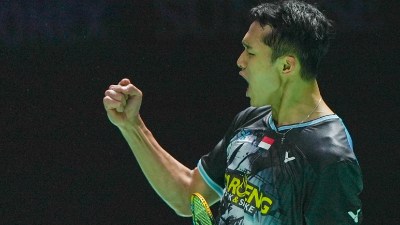Graffiti Democracy
They have spray-painted graffiti across Baghdad, they have taken over former government buildings and some of them are armed. But these are ...

They have spray-painted graffiti across Baghdad, they have taken over former government buildings and some of them are armed. But these are not militias. They are the political groups that could be the future of a multi-party democracy in Iraq.
After the collapse of three decades of repressive one-party rule by Saddam8217;s Baath party, political groupings from Communists to Islamists, monarchists to revolutionary offshoots have descended here.
It8217;s a bewildering array and many Iraqis have no idea who some of them are. But they are revelling in their new-found political freedom. 8216;8216;I am here to see what is happening, to understand what they are doing,8217;8217; said 35-year-old Khaled Abbas after meeting activists of a group called the Gathering for Iraqi Democracy at their offices in a former rest house. The country8217;s political future remains unclear.
The arrival back from exile of Ahmad Chalabi, head of Iraqi National Conference political grouping, has fuelled suspicions because of his association with Washington. But the uncertainty has not stopped political parties from seeking to spread their message. Asked about the goals of his Gathering for Iraqi Democracy, assistant secretary-general Mohammed Kathir Mutlaq, said: 8216;8216;It is for freedom and human rights8230;We want a multi-party system, a country that respects the rule of law.8217;8217;
It is the kind of promise heard at other party headquarters across the city. But it can8217;t be repeated enough for most Iraqis, who are tired of the pro-Saddam slogans that have been part of their lives.
New slogans, splashed up on walls, now appear across the city. 8216;8216;Freedom, equality, worker8217;s government,8217;8217; a Communist party has scrawled. Graffiti by the Shi8217;ite Islamic Dawa party pledges to rebuild Iraq. The sudden explosion in groups has not impressed some.
8216;8216;There must be many parties for a democracy but now, 10 or 20 people together call themselves a party. It is impossible,8217;8217; said 65-year-old Ahmed Raed al-Jabburi. And some old habits also die hard. At the headquarters of the Free Officers and Civilian Movement FOCM retired Lieutenant Colonel Karim Ali was prompted to repeat slogans by another activist as he explained what his party stood for.
Meanwhile, running a party in Baghdad is no easy task. The party Karim Ali has signed up for has no leaflets to hand out because there is no electricity to print them. The only copy of the by-laws they have includes one pledging to keep the military out of politics, although an AK-47 assault rifle lay on a chair next to FOCM activist, former Army officer Khaled Abdullah. 8216;8216;It8217;s to protect us from looters,8217;8217; said the 32-year-old.
The new-found freedoms are also exposing bitter rivalries and voices that sound far from democratic. A Shi8217;ite pulled out a portrait of Mohammed Baqr al-Hakim, head of the Supreme Council for the Islamic Revolution in Iraq, saying he would fight to make him President. Reuters
|
Tunnel factor
|
| Michael Georgy Baghdad, April 21 The Iraqi man watching US soldiers on a hilltop couldn8217;t understand why they were not digging. Muhammad believes that beneath the huge dirt mound could be an underground tunnel used by Saddam Hussein to escape from US forces. 8220;They don8217;t realise it but they are standing on one of Saddam8217;s palaces. He could have gotten away through here, through the tunnels,8221; he said. While US troops and tanks patrol Baghdad, Iraqis wonder how Saddam escaped the bombs that pulverised the capital. Story continues below this ad Many are obsessed with the notion that Saddam, his sons and chief aides escaped through underground passages, with access to food and supplies to last for months. But it is not clear whether Saddam is dead or alive, a mystery that makes him seem invincible even after losing power. 8216;8216;There are lots of tunnels here. They connect all his palaces. He8217;s probably hiding underground,8221; said Kathim, pointing to five presidential palaces. At the destroyed headquarters of the Iraqi National Olympic Committee, an engineer who worked there said multi-million-dollar antique cars were parked in underground lots. Iraqis have also been searching for subterranean prisons, hoping to find relatives arrested many years ago and unheard from since. Story continues below this ad People look beneath bridges for hidden compartments, listening for voices as cars stream by. Others dig up the earth. 8220;I thought I couldn8217;t find my brothers in the prison. I have looked everywhere. What do I do?,8221; said Hussein. The only clues he found were scratched on a wall. |
- 01
- 02
- 03
- 04
- 05































